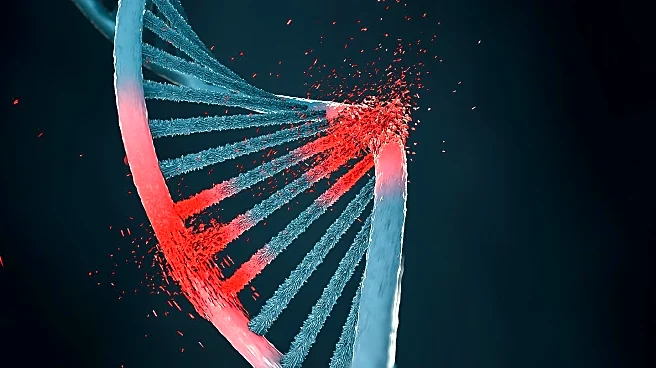What's Happening?
A new study has developed a rapid epigenomic classification system for acute leukemia, utilizing DNA methylation data from a large cohort of pediatric and adult patients. The system improves diagnostic accuracy by integrating data from various sources, including RNA-sequencing and conventional assays. The classification process involves semi-supervised clustering and label propagation, allowing for precise identification of methylation classes. This method has shown high specificity and sensitivity, providing a robust tool for leukemia diagnosis.
Why It's Important?
The advancement in epigenomic classification represents a significant leap in leukemia diagnostics, offering faster and more accurate identification of disease subtypes. This can lead to more personalized treatment plans and better patient outcomes. The integration of diverse data sources and advanced computational techniques highlights the growing role of bioinformatics in healthcare, potentially setting a new standard for cancer diagnostics and treatment strategies.










